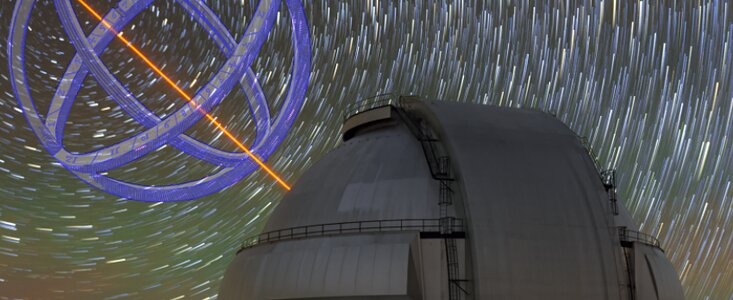New White Paper on Best Practices for Multi-Institution Astronomy Communication
13 January 2021
Scientists and science communication professionals from a collection of institutes, including the National Science Foundation (NSF), NSF’s NOIRLab, NASA, AURA, and various European observatories, have published a white paper detailing best practices for science communication on behalf of large, multi-institutional collaborations.
The biggest breakthroughs in science have always relied on collaboration, and the scale and complexity of astronomical collaborations have increased as astronomers set more and more complex goals. From the Event Horizon Telescopes’s worldwide network of 13 telescopes to the LIGO Scientific Collaboration, big science is increasingly done by large, international, multi-institutional collaborations.
This plurality of scientists, instruments, and collaborations enables unprecedented scientific discoveries but also makes communicating results difficult. Communicating breakthroughs from collaborators scattered across the globe poses a formidable challenge in timing, cooperation, and coordination.
Scientists and astronomy communication professionals from around the world gathered to address these challenges at a summit in November 2019. Drawing on the experience of sharing some of the biggest astronomy breakthroughs of the decade, they outlined best practices for large astronomy media campaigns. Their collected experience, guidelines, and best practices have now been published in the white paper document — Best Media Practices for Multi-institutional Science Collaborations. The paper and workshops were funded under a grant from the NSF called Gemini in the Era of Multi-Messenger Astronomy (GEMMA), which also funds new instrumentation and tools for astronomers using Gemini Observatory, a program of NSF’s NOIRLab.
Results from this white paper were presented at a virtual media workshop on multi-messenger and time-domain astronomy on 8 January 2021. The workshop was offered jointly by NOIRLab and the AAS Press Office as part of the 237th meeting of the American Astronomical Society (AAS), and brings together astronomers, science journalists, and other professional science communicators.
The workshop video is publicly available online.
Links
Contacts
Peter Michaud
Education and Engagement Manager
NSF NOIRLab
Cell +1 808-936-6643
email: peter.michaud@noirlab.edu
Amanda Kocz
Press and Internal Communications Officer
NSF NOIRLab
Cell: +1 520 318 8591
Email: amanda.kocz@noirlab.edu
Whitney Clavin
Senior Content and Media Strategist
Caltech
Cell: + 626 390 9601
Email: wclavin@caltech.edu






